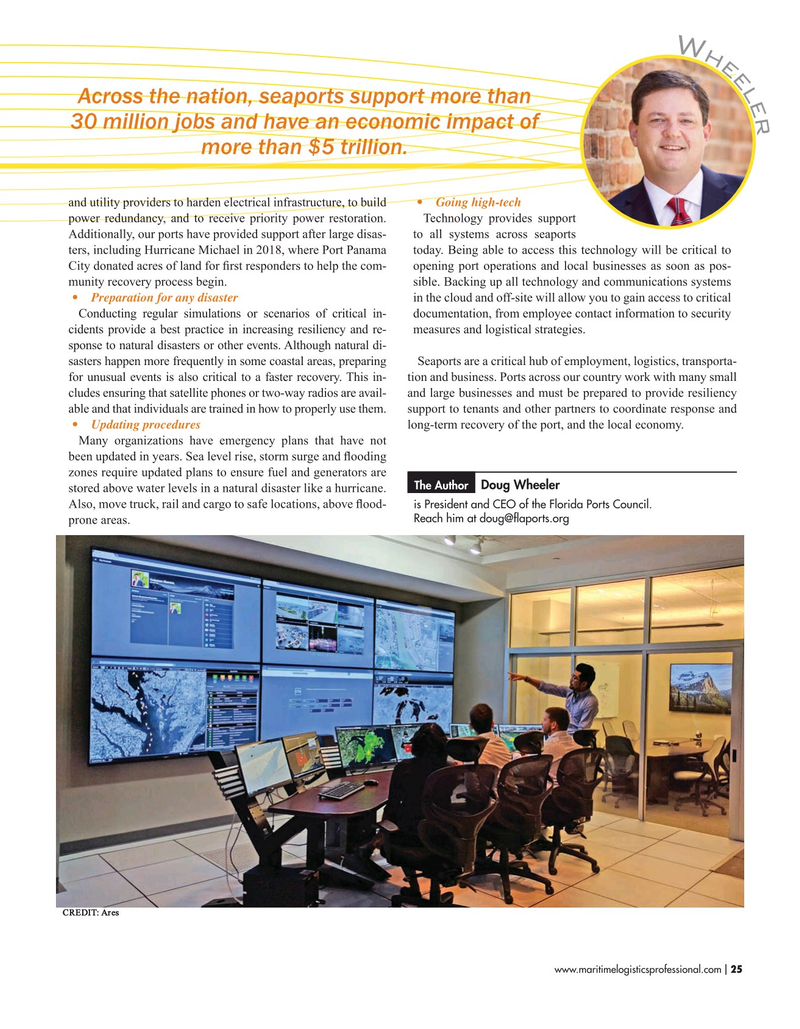
Page 25: of Maritime Logistics Professional Magazine (Nov/Dec 2019)
Short Sea Shipping Ports
Read this page in Pdf, Flash or Html5 edition of Nov/Dec 2019 Maritime Logistics Professional Magazine
W h e e l
Across the nation, seaports support more than e r 30 million jobs and have an economic impact of more than $5 trillion.
and utility providers to harden electrical infrastructure, to build • Going high-tech power redundancy, and to receive priority power restoration. Technology provides support
Additionally, our ports have provided support after large disas- to all systems across seaports ters, including Hurricane Michael in 2018, where Port Panama today. Being able to access this technology will be critical to
City donated acres of land for frst responders to help the com- opening port operations and local businesses as soon as pos- munity recovery process begin. sible. Backing up all technology and communications systems • Preparation for any disaster in the cloud and off-site will allow you to gain access to critical
Conducting regular simulations or scenarios of critical in- documentation, from employee contact information to security cidents provide a best practice in increasing resiliency and re- measures and logistical strategies. sponse to natural disasters or other events. Although natural di- sasters happen more frequently in some coastal areas, preparing Seaports are a critical hub of employment, logistics, transporta- for unusual events is also critical to a faster recovery. This in- tion and business. Ports across our country work with many small cludes ensuring that satellite phones or two-way radios are avail- and large businesses and must be prepared to provide resiliency able and that individuals are trained in how to properly use them. support to tenants and other partners to coordinate response and • Updating procedures long-term recovery of the port, and the local economy.
Many organizations have emergency plans that have not been updated in years. Sea level rise, storm surge and fooding zones require updated plans to ensure fuel and generators are
Doug Wheeler
The Author stored above water levels in a natural disaster like a hurricane.
Also, move truck, rail and cargo to safe locations, above food- is President and CEO of the Florida Ports Council.
Reach him at [email protected] prone areas.
CREDIT: Ares www.maritimelogisticsprofessional.com 25
I

 24
24

 26
26
